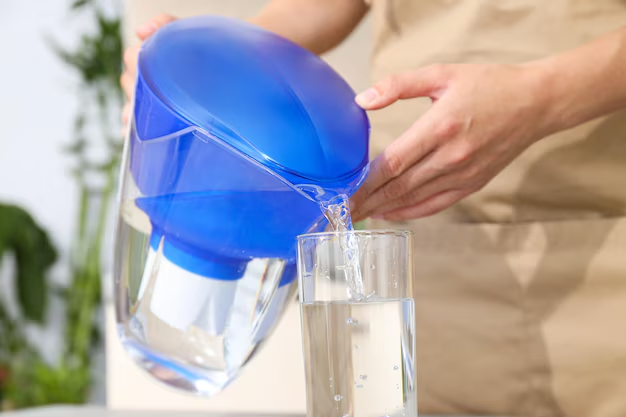How Often Should You Replace Your Refrigerator Water Filter?
Imagine quenching your thirst with a refreshing glass of water straight from your refrigerator. It's a simple pleasure that many of us enjoy daily. However, the purity of that water largely depends on the state of your refrigerator's water filter. Have you ever wondered how often you should be replacing this critical component? Neglecting to change your refrigerator water filter can lead to unpleasant-tasting water or, more concerningly, health risks. In this guide, we’ll explore how frequently you should replace your refrigerator water filter and why it’s crucial for your health and appliance longevity.
🧊 Understanding the Role of Refrigerator Water Filters
Before diving into replacement schedules, let's first understand the role of a refrigerator water filter. These filters are designed to remove impurities such as chlorine, lead, and other contaminants from your tap water, improving its taste and smell. By trapping these harmful substances, the filters ensure that the water dispensed from your fridge is both safe and delicious.
Why is Regular Replacement Necessary?
Consistent maintenance of your water filter ensures it functions optimally. Over time, filters become clogged with the contaminants they trap, reducing their effectiveness. If not replaced, this can lead to:
- Reduced Water Flow: A clogged filter can slow down the flow of water or even stop it entirely.
- Compromised Water Quality: A worn-out filter might allow contaminants to seep into your drinking water.
- System Overload: Continuous use of an old filter can strain your refrigerator’s water system, potentially leading to costly repairs.
🗓️ How Often to Replace the Water Filter
One of the most common questions among refrigerator owners is: how often should the water filter be replaced? While the general recommendation is every six months, replacement frequency can vary based on several factors.
Factors Influencing Replacement Frequency
- Water Quality: If your municipal water supply has higher levels of contaminants, your filter may wear out quicker.
- Usage Patterns: Households that use the water dispenser more frequently may need to replace the filter more often.
- Refrigerator Model: Different models might have varying filter lifespans. Always refer to your appliance's manual for specific guidance.
🛠️ Signs It's Time to Replace Your Filter
Keep an eye out for these signs indicating a filter change is due:
- Unpleasant Taste or Odor: If your water starts tasting or smelling off, it's time to check the filter.
- Decreased Water Pressure: A noticeable drop in water flow suggests the filter might be clogged.
- Warning Lights: Modern refrigerators often have an indicator that notifies you when it's time to change the filter.
🌟 Practical Steps for Replacing Your Water Filter
Replacing your refrigerator's water filter is typically straightforward, but the process can differ slightly depending on the model. Here’s a general guide to help you through it:
Step-by-Step Guide
- Locate Your Filter: This is usually found in the grille at the base, inside of the refrigerator, or at the back. Refer to your user manual for specific instructions.
- Remove the Old Filter: Follow any specific instructions provided by the manufacturer to remove the filter safely.
- Install the New Filter: Ensure it's properly seated and secure to prevent leaks.
- Flush the System: Run a few gallons of water through the new filter to clear out any carbon debris.
- Reset the Indicator: If your fridge has a filter indicator light, reset it after installation.
🔍 Exploring Filter Types
Understanding the type of filter your refrigerator uses can streamline the replacement process. Here are common filter types:
- Push-In Filters: Designed for easy installation and typically located at the base grille.
- Twist-On Filters: Commonly located inside the fridge and need to be turned counterclockwise to remove.
- Inline Filters: Positioned along the water line and need to be detached for replacement.
📝 Summary Table: When to Replace Your Refrigerator Water Filter
| Factor | Replacement Frequency |
|---|---|
| Standard Use | Every 6 months |
| High Water Contaminant | More frequently; assess every 3-4 months |
| Increased Usage Volume | Assess every 3-4 months |
| Performance Indicators | Based on taste, odor, and pressure changes |
🛡️ Tips for Prolonging Filter Life
While the replacement is essential, there are ways to extend the life of your filter and maintain optimal water quality:
- Regularly Check Water Quality: Stay informed about municipal water supply issues in your area.
- Store Replacement Filters Properly: Keep them in a cool, dry place to maintain efficacy.
- Buy Genuine Filters: Ensure filters are compatible with your fridge to prevent damage and inefficiency.
📈 The Cost of Neglect
Ignoring filter maintenance can lead to more than just unpleasant-tasting water. Poor filter maintenance significantly impacts your fridge's performance and your health over time. When contaminants build up, they can enter your water supply and potentially cause health issues. Furthermore, clogged filters can lead to water line blockages, causing malfunction and necessitating costly repairs.
💡 Concluding Thoughts
Regularly replacing your refrigerator water filter is an essential aspect of maintaining not only the appliance but also the health of your household. By understanding your usage patterns and being vigilant about water quality, you can determine the most suitable schedule for replacing your filter. Always refer to your refrigerator's manual for the most accurate recommendations, and maintain a routine replacement schedule to ensure the purest water flow with every glass.

